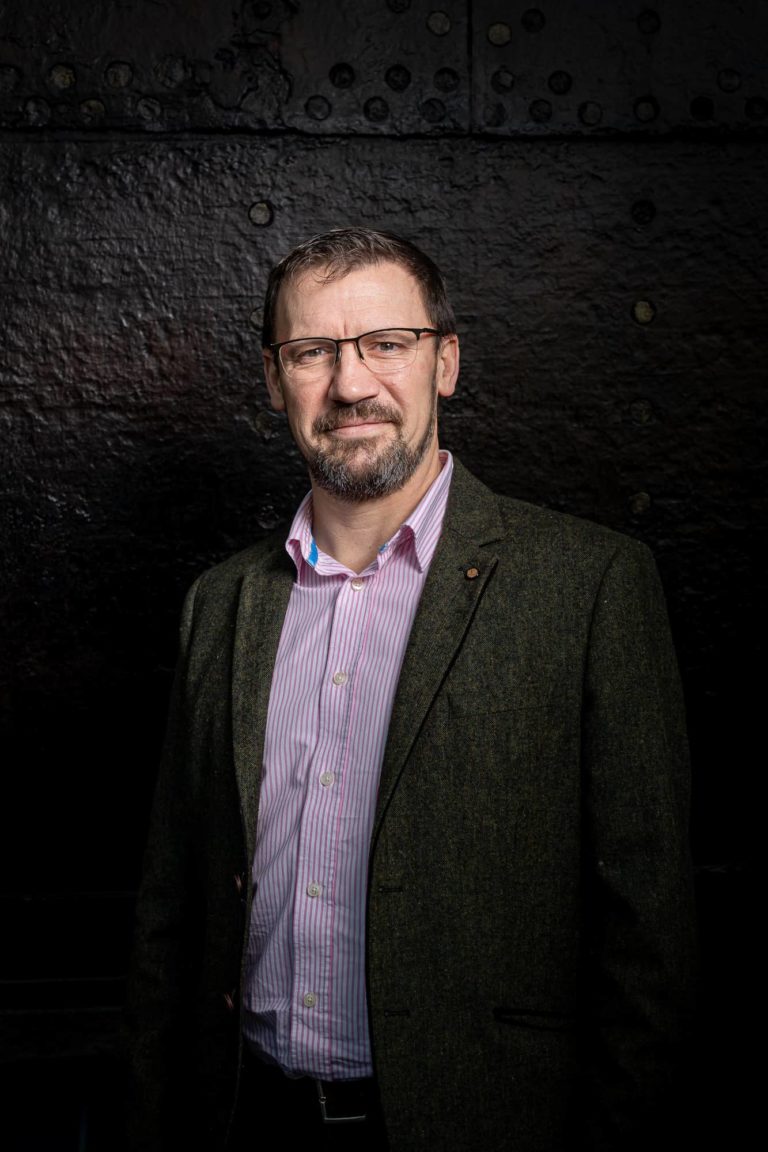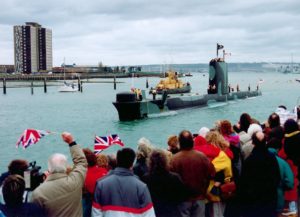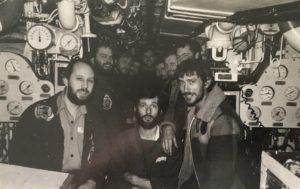Midge Ure – Family Grams – getting good and bad news
So, my early days were spent on bombers, and the communication you would have on there, and again I don’t know if you’ve been told, it was a 40-word Family Gram. It was a ‘bluey’ they used to call them. 40 words Family Gram and if you imagine sending someone 40 words, I don’t know how many words were in that paragraph there, but it’s probably about 40 words, that’s what you’d receive. We tended to receive them on a Saturday, maybe a Friday night, Saturday.
I don’t know if that was just when the wire came in, so our submarine would sit somewhere, it would pick up the information, download it. It would be read by three or four people, they’d then issue you with a little envelope …
Simon: You’d physical get it?
Yeah, you physically get it. You get the envelope, you then usually retreat somewhere and you read it because it’s your own personal little message, and it was fairly vague a lot of the time. The first couple come through, so maybe the first time you’ve ever been to sea, I don’t know if your mum did it if you were a young boy or girl at sea, your mum would write it and she’s probably write 40 words of nothing and send it and you think oh, there’s nothing in that.
It used to have to be like ‘family good, holiday booked’ or whatever it was, or ‘can’t wait to see you’ type of thing. You had to get as much information in there but I’d imagine, it definitely happened that people would have coded words in there, so it went through a series of scrutinization before it came to you.
So, it went into the Radio Shack, the Petty Officer in there, the RS, he would see it. The RO, the Radio Operator would see it, and it would probably, I don’t know if it was up to them, to guess whether there was information on there. Certainly, if someone had died and it was on that bit of paper, that wouldn’t be passed to you. You know, that isn’t psychological, that isn’t going to be good.
That is a call for the Captain and it was always your worst fear. So, if you were away for, again a standard Patrol back then, 10 weeks. If you were away for 10 weeks, you didn’t want to hear on week 3 that your dog had passed away, or granny or mother was in Hospital. You didn’t want to hear that because that would really screw you up and the nature of the SSBN, the ballistic submarines, the big Vanguard Class, was that they wouldn’t surface for anything. They just don’t break that cover, so you knew you were on there.
So, you mentally had to steel yourself for that. So, not knowing was the best thing and it wouldn’t have been the first time that somebody had come home to realise that somebody had passed away and been buried and the grief process was ongoing whilst your returned.
But you did know before you hit the wall ‘cos what you heard, on approaching the river, or coming in on the night before, if there was a chance to get you off, there would be a pipe or you would get a message, “You need to go and see the Captain” or “You need to go and see the MEO” so only on one occasion did I have the MEO call me in.
So, he pulled me in, he just said, “Look,” I’ll always remember it, he said, “I just need to have a chat. You’re no going in there; you’re going in there to be told news.”
Simon: You know somethings up.
All you want to be told is it’s not my immediate family, it’s not my kids, my wife, and I say thankfully, it was aunty who was … you know it wasn’t a massive shock to me that it had happened.
Had it been, it would have been like oh … but they told me at the right time.
As it was, “Do you want to get off?” I think we were a day away from getting off. They could have got me off that night, so “No, I’m ok. As long as everybody’s ok at home and it’s just that” but it wouldn’t be the first time somebody’s come out of there crying and wanting to come off. “I need to go now.” So, you couldn’t really be told that news any earlier.







